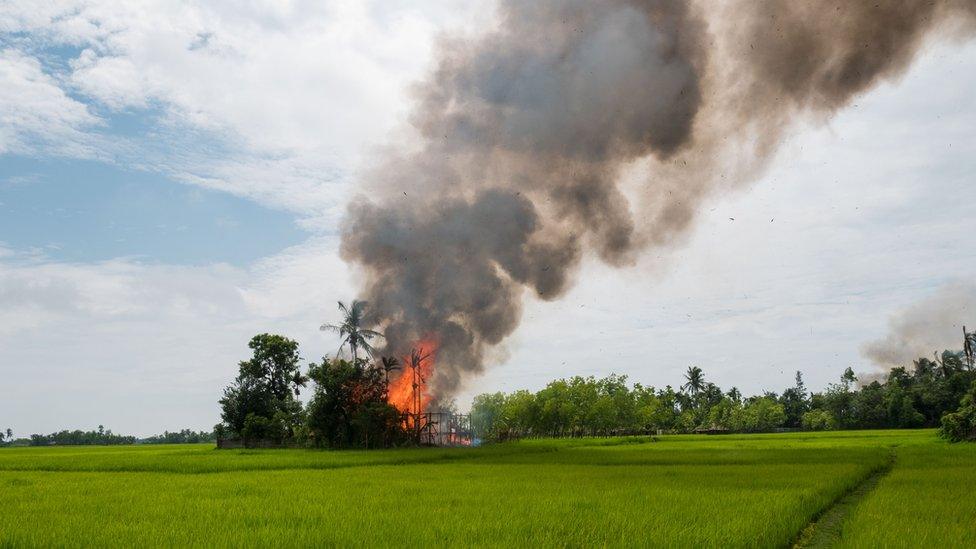Myanmar journalists: Families urge Wa Lone and Kyaw Soe Oo release
- Published
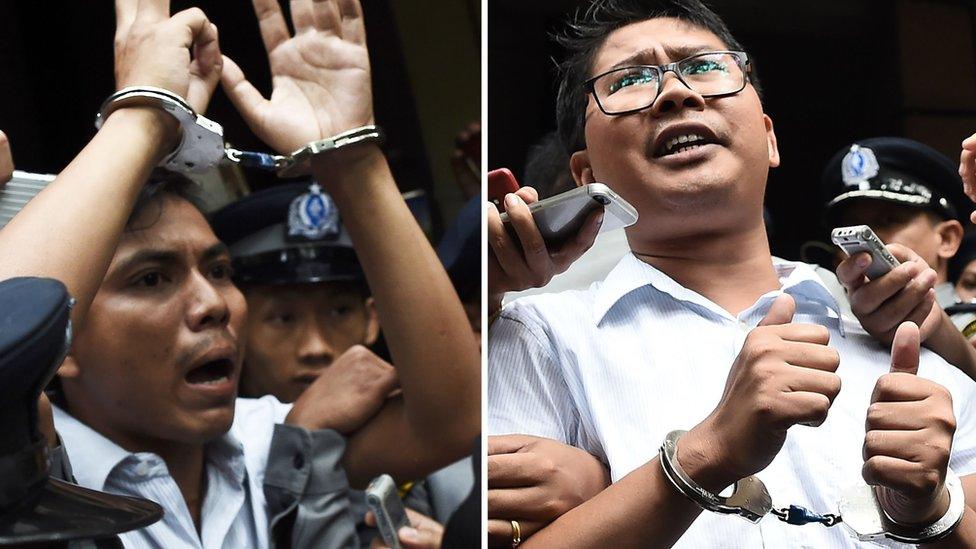
Kyaw Soe Oo (left) and Wa Lone have been in prison for one year
Family, friends and colleagues of two Reuters journalists imprisoned in Myanmar have called for their immediate release one year on from their arrest.
Wa Lone and Kyaw Soe Oo were earlier this week honoured among other persecuted or killed journalists as Time magazine's persons of the year.
They were sentenced to seven years in jail for violating a state secrets act while reporting on the Rohingya crisis.
The case has been widely seen as a test of press freedom in Myanmar.
Supporters of the pair planned to gather in central Yangon on Wednesday evening, while people from around the world posted photos on social media of the "thumbs up" gesture that became a symbol of the pair's court appearances.

The two journalists had been investigating the murders of 10 Rohingya men by the army in the northern Rakhine village of Inn Dinn.
They were detained in December last year while carrying official documents they had been given by two police officers.
They have always maintained their innocence and say they were set up by the police.
BBC Myanmar correspondent Nick Beake said the pair's award-winning investigation forced a rare admission of guilt from the still powerful Burmese military.
But it made no difference at their trial, he adds, explaining that for many, it was a farce - as seen when a police whistle-blower admitted that the reporters had been set up, before he too was jailed.
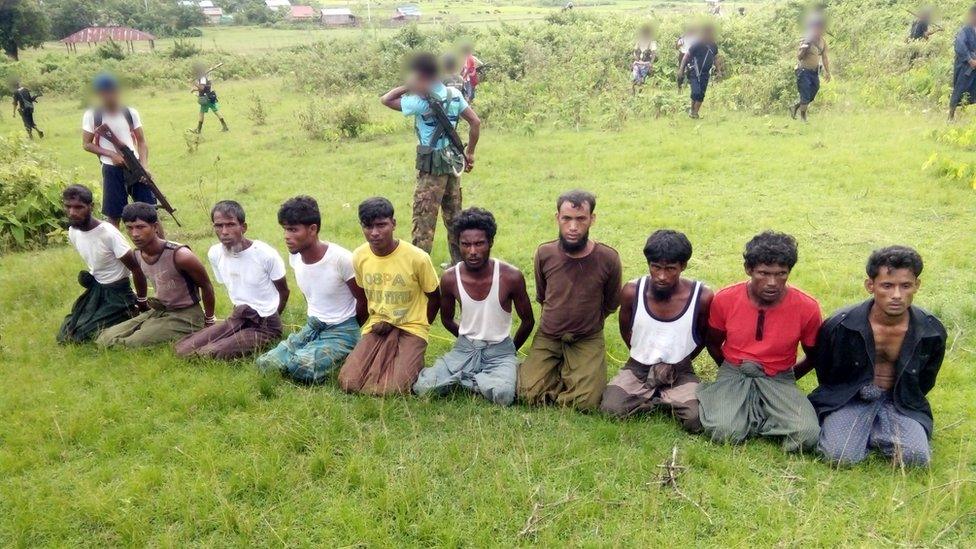
These are the men whose deaths the Reuters journalists were investigating
Myanmar's de-facto political leader Aung San Suu Kyi has faced strong international criticism for insisting they had a fair trial and has ignored all calls to pardon them.
She defended the verdict saying the two journalists had broken the law and that their conviction had "nothing to do with freedom of expression at all".
She's also facing criticism for not speaking up for the Muslim Rohingya minority.
Since last year, at least 700,000 Rohingya have fled Myanmar, also known as Burma, after the army launched a brutal crackdown in response to attacks by a Rohingya militant group.
The UN has called for top military figures to be investigated for genocide.
- Published11 December 2018

- Published13 September 2018
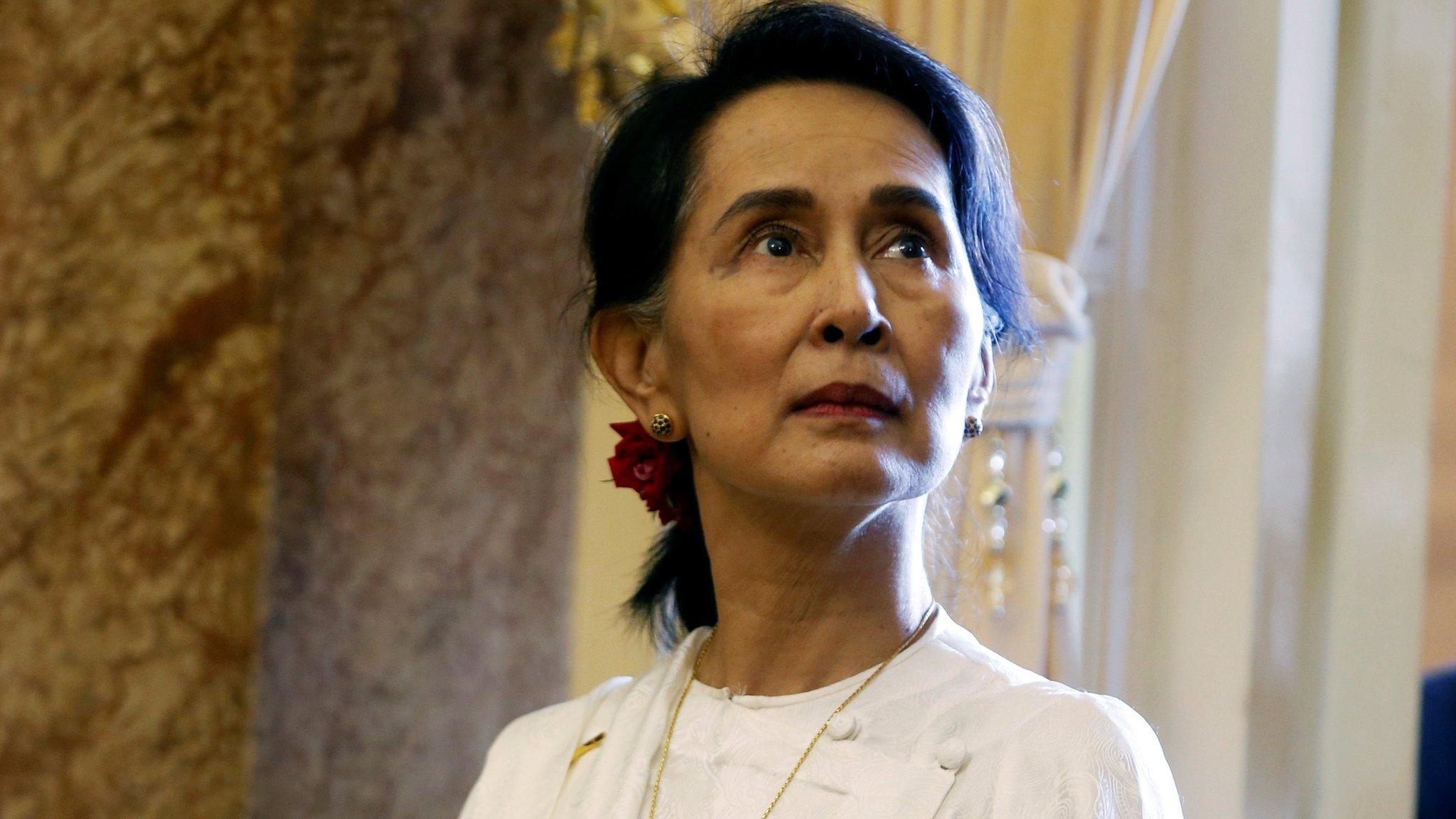
- Published5 September 2018
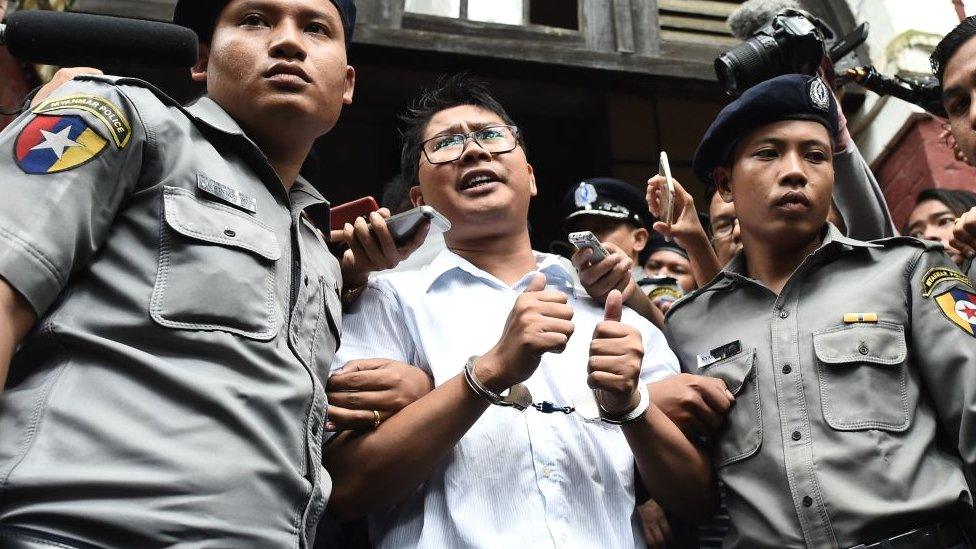
- Published8 February 2018
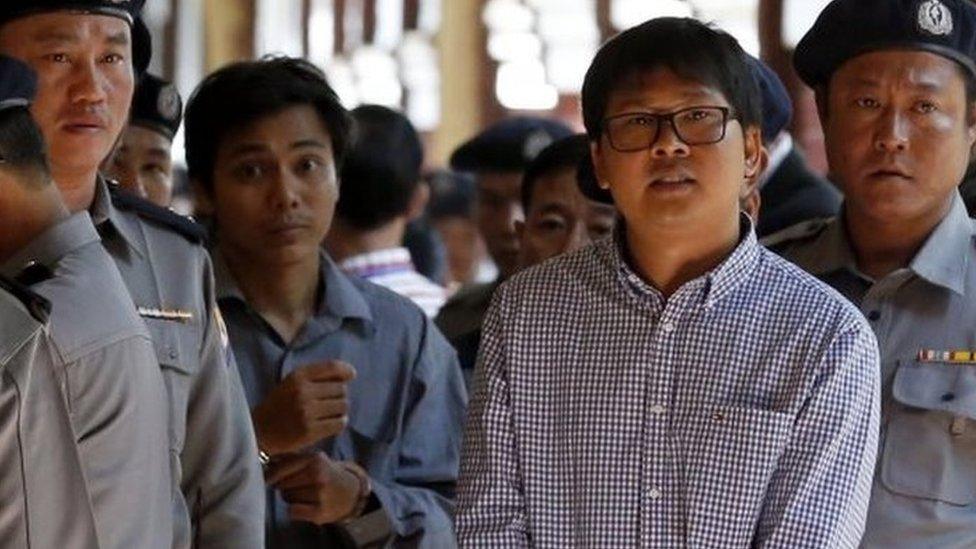
- Published11 September 2017
